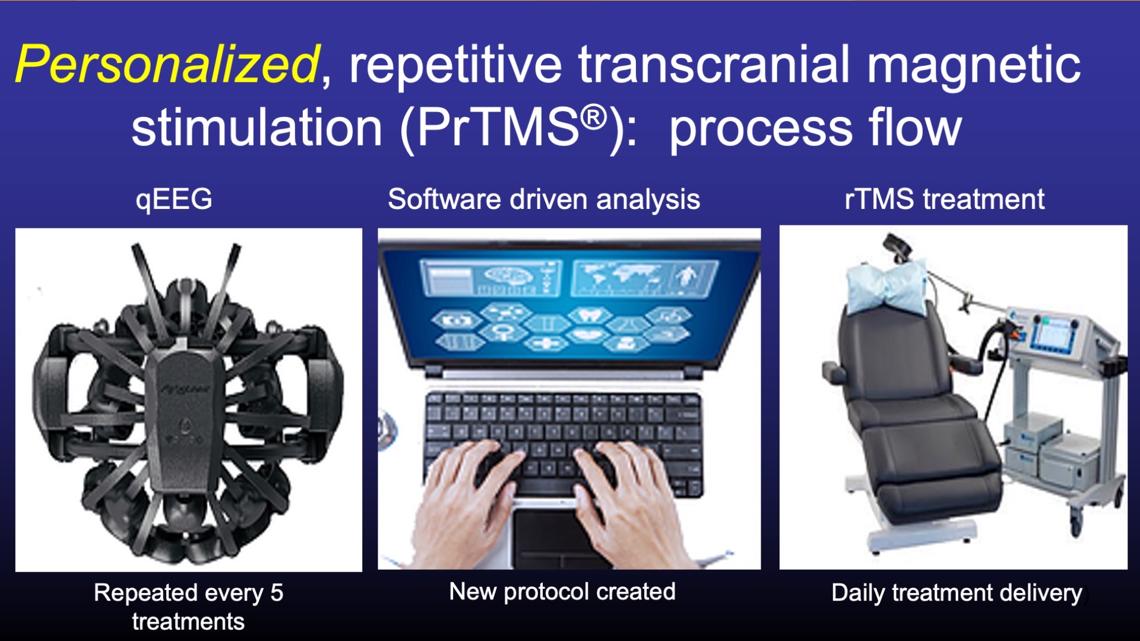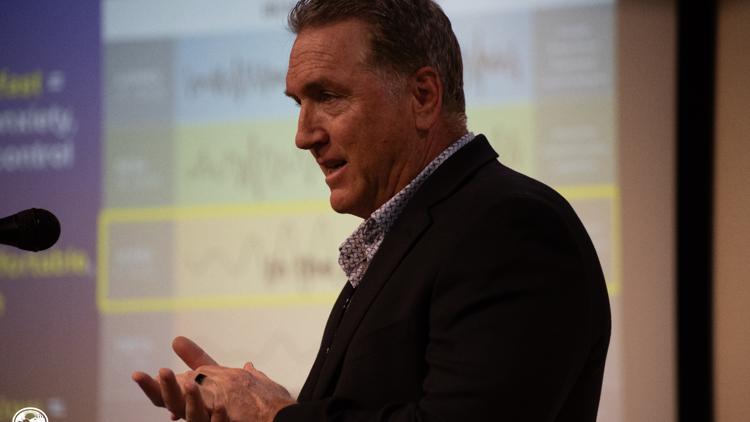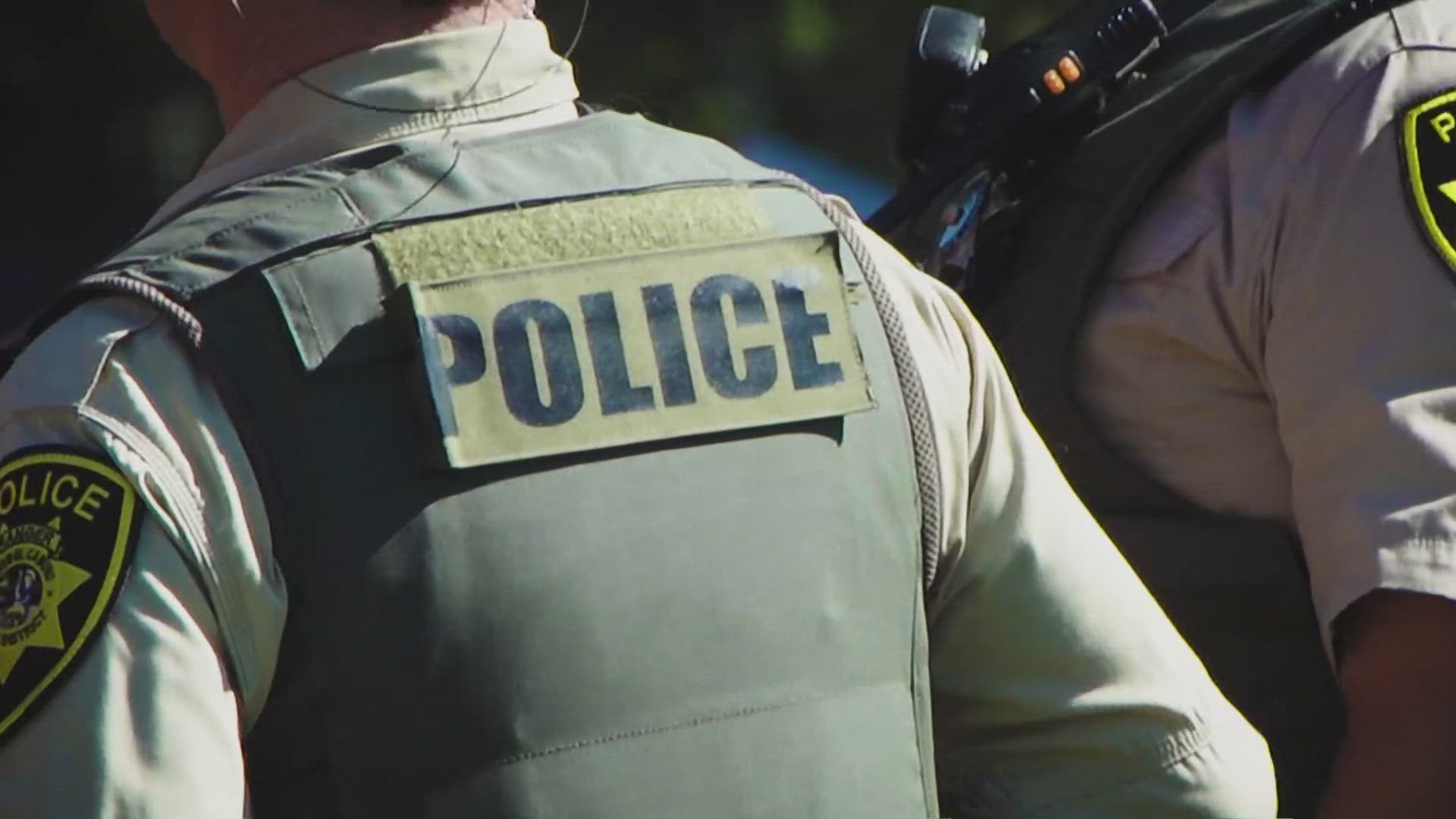TURLOCK, Calif. — There’s a new question for Turlock’s police detectives and fire investigators, but this one doesn’t require any lights and sirens: is there another way to treat the aftermath of trauma without a need to medicate?
It’s a question Dr. Kevin Murphy, CEO of PeakLogic, believes he’s answered. Now, the city of Turlock is weighing whether it can actually help first responders and dispatchers with post-COVID stress and trauma.
It’s called PrTMS, or Personalized Repetitive Transcranial Magnetic Stimulation. It’s a long name with some technical terms, but it generally comes down to treating the brain instead of the problem, at least initially.
As Murphy puts it, PrTMS tunes up the orchestra (the brain) to make sure everyone is playing the same sheet music and harmonizes.
“We have noise, and the system is not perfectly tuned. And this (PrTMS) is tuning up that system so all the other therapies work better. If the piano is tuned, it's going to play better, period,” Murphy told ABC10.
It starts with a brain scan and a magnetic signature of the brain in 19 locations. Then health experts take the information and adjust protocol to match what you need – that’s the “Personalized” part of PrTMS.
From there, it’s about 30-40 different sessions where the patient comes in, sits on a dental chair and gets treated with magnetic stimulation, feeling at most a small vibration on the scalp. The TMS portion has been around for nearly 40 years.


“When you and I go to a restful, calm state, a meditative state, we can measure it. So I ask my patients, ‘Go to your best calm state. I'm going to measure it and then stop that mathematically and then decide how to tune that system,” Murphy said.
But it begs the question as to who this therapy benefits. Traditional therapy is available in both virtual and in-person formats to tackle issues like PTSD and stress. That's not lost on Murphy. He says if that works for you, stay with it. PrTMS isn’t meant to take away or prevent any other type of therapy.
“Whatever is working is working. So drug therapy, it might be medication management or psychotherapy or behavioral therapy or counseling - whatever therapy is working, we stay with,” he said.
He says it’s ultimately another option for patients to choose when they look for treatment. According to Murphy, these patients include the Special Operations Command in the Navy and the Air Force. The rigors of public safety jobs and trauma exposure during the pandemic is part of the reason why this treatment is being explored with Turlock’s first responders.
“They had exposures, a lot of COVID exposure and trauma exposure, and then their daily work is fraught with stress and hours that are not opportune for the brain to regulate,” Murphy said.
Other patients might include those who have tried drug therapy, but don’t care for the side effects. He says PrTMS has helped people sleep better and medicate less, specifically for the military patients.
Other patients are those with cerebral palsy or autism, for which he said there are no similar therapies. It’s within that field of patients that Murphy says he had his biggest win. Despite his success across the U.S., his biggest win was at home.
“I already kind of won in terms of my personal victory. I got my son to be able to make full eye contact, full sentences. Those things were missing when we first started and he's a different kid now,” Murphy said, recalling how his child with autism benefited from the therapy.
It’s an achievement worth sharing, because even though the treatment could potentially be offered to public safety workers, more centers offering the treatment will be coming to the area. Genesis Behavior Center operates with PrTMS in Modesto and expects to open one up in Turlock in the next week and in Sacramento, not far from Cal Expo, within the next 45 days. These would be for the general public.
In a statement, Genesis Behavior Center CEO Romena Kiryakous says they’ve treated 75,000 patients across the U.S. with PrTMS.
“For Genesis Behavior Center Inc., it has been a great experience as we treat individuals with a wide range of symptoms. Specifically, PrTMS is helping children with Autism, ADD, ADHD, anxiety, depression, OCD, sleep issues, and performance challenges,” Kiryakous said. “We have already seen many success stories and happy to be sharing it with public.”
“Most things are hard or considered heresy until they're not, right? Every standard of care that we do for anything right now started off as a crazy idea or something that was not understood well, so this is the same thing,” Murphy said.
WATCH MORE ON ABC10: Health impacts from wildfire smoke exposure





















